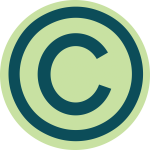Learn about our services
Learn about our legal services for: App Developers, Artists & Graphic Designers, Bloggers & Journalists, Clothing Designers, Entrepreneurs, E-commerce Business People & Startups, Filmmakers & YouTube creators, Public Broadcasting producers,Game Developers, Internet users & Smartphone users, Makers, Musicians, Non-Profits, Photographers, Scholars, Researchers, and Writers and Publishers.

 New Media Rights has filed comments with the Copyright Office supporting four specific exemptions to the Digital Millennium Copyright Act’s anti-circumvention provisions that will protect both internet users and creators' rights under fair use. Exemptions are argued every 3 years, and ensure that accessing copyrighted material for purposes of fair use don't needlessly violate federal law.
New Media Rights has filed comments with the Copyright Office supporting four specific exemptions to the Digital Millennium Copyright Act’s anti-circumvention provisions that will protect both internet users and creators' rights under fair use. Exemptions are argued every 3 years, and ensure that accessing copyrighted material for purposes of fair use don't needlessly violate federal law.

